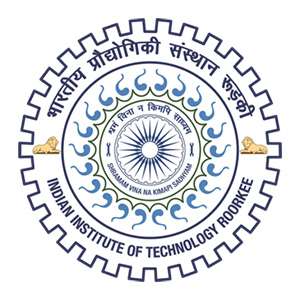IIT Roorkee ( MSc Economics through IIT JAM )
IIT Roorkee MSc Economics program is a great choice if you want a career that requires strong analytical skills and in-depth knowledge of economics. It will expose you to current economic policy issues both nationally and internationally. What makes the MSc in Economics at IIT Roorke unique is that it teaches you how to use economic principles and theories, giving you a solid understanding of the technical aspects behind them. This knowledge will help you apply, modify, test, and adjust these economic ideas to fit the ever-changing economic landscape.
Admission Procedure through IIT JAM
Qualified candidates can submit their applications for the MSc Economics at IIT Roorke program via the Joint Admission Test for Masters (JAM). Admission will be based on merit of the candidate in the written examination followed by an interview
Eligibility Criteria for MSc in Economics IIT Roorkee 2024
Eligibility criteria for IIT Roorkee’s M.Sc. Economics program include: Bachelor’s degree in Economics (B.Sc. or B.A.) or Statistics (B.Sc.) or BCA. Bachelor’s degree in Mathematics as one of the subjects (for B.Sc./B.A./B.Com. graduates). No restrictions for candidates with engineering degrees.
No. of Seats in IIT Roorkee
Number of available seats: 30 for the MSc Economics program at IIT Roorkee.
Fees for IIT Institutes
Please be aware that the fees for the program may differ from one institute to another. To get the exact fee details for your chosen institute, it’s advisable to visit the official website of that institute. This will ensure you have the most accurate and current information about the fees.
IIT JAM Entrance Exam Syllabus
Microeconomics
Consumer theory: Preference, utility, budget constraint, choice, demand, Slutsky equation, revealed preference axioms. Theory of production and cost: Production technology, isoquants, returns to scale, short run and long run costs, cost curves. General equilibrium and welfare: Equilibrium, efficiency, welfare economics. Market structure: Perfect competition, monopoly, price discrimination, monopolistic competition, oligopoly. Game theory: Strategic form games, Nash equilibrium, mixed extension, Prisoner’s dilemma. Public goods and market failure: Externalities, public goods, asymmetric information.
Macroeconomics
National income accounting: Concepts, measurements, fiscal and foreign sector variables.Behavioural and technological functions: Consumption functions, investment functions, money demand and supply.Business cycles and economic models: Classical model, Keynesian model, IS-LM Model, Hicks’ IS-LM synthesis, monetary and fiscal policies. Inflation and unemployment: Theories, measurement, causes, effects. Growth models: Harrod-Domar, Solow, Neo-classical growth models.
Statistics for Economics
Probability theory: Sample space, events, random variables, probability distributions, expectation, variance, functions of random variables. Mathematical statistics: Random sampling, estimation, hypothesis testing, correlation, regression.
Indian Economy
Indian economy before 1950: Transfer of tribute, deindustrialization. Planning and Indian development: Planning models, challenges. Indian economy after 1991: Balance of payments crisis, economic reforms. Banking, finance, and macroeconomic policies: Banking, financial sector reforms, fiscal and monetary policy, savings and investment. Inequalities in social development: Achievements, disparities between Indian States. Poverty: Methodology, issues in poverty estimation. India’s labour market: Unemployment, labour force participation rates.
Mathematics for Economics
Preliminaries and functions: Set theory, elementary functions, sequences and series, complex numbers. Differential calculus: Limits, continuity, differentiability, mean value theorems, partial differentiation, higher order derivatives, implicit function theorem. Integral calculus: Definite integrals, fundamental theorems, indefinite integrals. Differential equations, and difference equations: First order difference equations, first order differential equations. Linear algebra: Matrix representations, systems of linear equations, linear independence, determinants, eigenvectors and eigenvalues, symmetric matrices. Optimization: Local and global optima, multivariate optimization, constrained optimization, linear programming.
Please note that this is a summarized version of the syllabus.
IIT JAM 2024 Paper Pattern
The exam will last for 3 hours. It will be conducted in English only. There will be a total of 60 questions, and they will be divided into three sections: A, B, and C, all of which are mandatory.
Section A: This section has 30 Multiple Choice Questions (MCQs), with 10 questions carrying one mark each and 20 questions carrying two marks each. Each MCQ will have four options, and you select the correct one.
Section B: This section contains 10 Multiple Select Questions (MSQs), each carrying two marks. MSQs are similar to MCQs, but there can be more than one correct answer. You need to select all the correct choices to get full credit.
Section C: This section includes 20 Numerical Answer Type (NAT) questions, with 10 questions worth one mark each and 10 questions worth two marks each. For NAT questions, you need to provide a numeric answer using the virtual numeric keypad on the screen; there are no answer choices.
IIT JAM Entrance Exam Marking Scheme
If you leave a question unanswered in any section, you won’t receive any marks. In Section A (MCQ), providing a wrong answer will lead to negative marking. For each incorrect response to 1-mark questions, 1/3 mark will be deducted, and for each incorrect response to 2-mark questions, 2/3 mark will be deducted. In Section B (MSQ), there are no negative marks, and no partial marking is available. In Section C (NAT), there is no negative marking either.
Placements after IIT JAM
Upon completing the M.Sc. Economics program, students can pursue careers in government advisory roles, financial analysis for national and international institutions, data analysis, research, and consultancy. Additionally, this program can serve as a pathway to further Ph.D. studies at international academic institutions. Campus placements facilitated by the Institute’s Placement and Training Centre include opportunities in: Financial Services: Reserve Bank of India, American Express Bank, HSBC Bank, ICICI Bank, and more. Government Departments: Planning Commission (NITI Ayog), Ministry of Finance, Indian Council for Social Science Research (ICSSR), and others. Research and Consultancy: Crisil Research, Deloitte, Ernst & Young, PwC, Institute for Financial Management and Research, NCAER, etc. International Agencies: Economic advisory roles with organizations like the World Bank, Asian Development Bank, International Monetary Fund, OECD, and others. Development Sector: Opportunities in social sectors, NGOs, MFIs, NABARD, and more.
Know more about the training program at Edusure– the best Coaching For Economics Entrance Exams!



